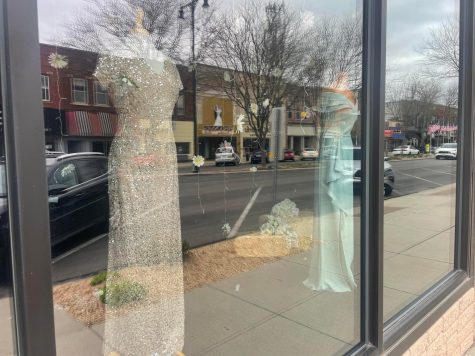Schools want the sky to be the limit on loans
September 9, 2015
By Janet Lorin
NEW YORK — For the past nine years, graduate students in the U.S. have had almost a blank check to take out as much as $80,000 a year in government-backed loans to pay for tuition and living expenses. Republican Sen. Lamar Alexander of Tennessee thinks that’s too much. He has introduced legislation, backed by Democratic colleagues Michael Bennet of Colorado and Cory Booker of New Jersey, to limit borrowing to $30,000 a year, with a cap of $150,000. Programs with especially high costs could appeal to the U.S. Department of Education to let their students borrow up to $15,000 more each year.
Colleges, whose lobbyists and trade associations have succeeded in defeating just about every attempt to control rising tuition costs over the last decade, are trying to soften Alexander’s proposed law, which would also radically simplify the federal student aid application.
“I don’t think that bill will be enacted as is,” says Carolyn Henrich, a lobbyist working for the University of California system in Washington. Henrich, who formerly lobbied for the National Parent Teacher Association, says she has met with Alexander’s staff to register the university’s opposition to the loan limits.
Cornell University doesn’t like the Alexander loan limits either. Neither does the Association of Jesuit Colleges & Universities, which includes Boston College, Fordham and Georgetown. Harvard, Northwestern and Vanderbilt have indicated in filings that they have lobbied on the Alexander bill, though they haven’t publicly taken a position for or against the loan limits. “We believe in a strong federal aid system that benefits all students and also serves the needs of graduate and professional students,” says Harvard spokeswoman Anna Cowenhoven.
The presence of university lobbying in Washington dates back at least to World War II, when the federal government began awarding large research grants. “The people running the government were graduates of the top schools, so they” wanted their own schools to get the grants, says Gerald Cassidy, a Washington lobbyist who represented dozens of colleges and universities over the years before he retired in December. In the 1970s and ’80s, many institutions brought their lobbying in-house, opening Washington offices. Nan Wells, who established Princeton’s D.C. lobbying office in 1979, says she focused on research funding, student aid and maintaining tax exemptions for donors. “One of the nice things about the job,” she says, is that “the issues were the same every year.”
Thomas Weko saw the influence of the college lobby as a staffer for the Government Accountability Office a decade ago. The Senate directed the GAO to study an antitrust exemption allowing almost 30 elite colleges to discuss policies for disbursing private scholarship money. Weko says college lobbyists participated — unannounced — in a call that he held with Senate staff about designing the GAO study. “You felt them pulling the strings as you participated in meetings with Senate staff,” says Weko, now a managing researcher at the American Institutes for Research, a Washington-based nonprofit that evaluates social policies. An extension of the exemption sailed through Congress this summer.
Colleges made a major lobbying push in 2009, when the Education Department tried to overhaul Perkins Loans, a $1 billion government-backed revolving fund for low-income students, says Bob Shireman, a former deputy under secretary of education. The Obama administration’s proposed change would have expanded the program but redistributed the cash among schools. “We would hear, ‘My college is unhappy because of something you are proposing,’ ” he says. “We dropped the whole thing.”
Schools argue that low-income students wouldn’t be able to afford expensive programs if the government scales back its lending limits. Matthew Shick, a senior legislative analyst with the Association of American Medical Colleges — whose students graduate with an average debt of $176,000 — has met with Alexander’s staff. “When you go to med school, you are talking about complicated simulation equipment, clinical rotations, labs with cadavers,” he says. “This adds to the cost.” His group spent almost $5.2 million lobbying last year, according to the Center for Responsive Politics, almost four times as much as the next biggest spender, the for-profit giant Apollo Education Group.
Some lower-priced public universities are fine with introducing limits on student debt. The amount graduate students are allowed to borrow is “a little outrageous right now,” says Susan Fischer, who oversees financial aid at the University of Wisconsin at Madison. Others say graduate students should be trusted to understand how to manage their financial obligations. “They know what they are doing,” says Jonathan Burdick, vice provost for enrollment at the private University of Rochester. “People are not as dumb as the public dialogue seems to think they are.”
©2015 Bloomberg News
Visit Bloomberg News at www.bloomberg.com
Distributed by Tribune Content Agency, LLC.















